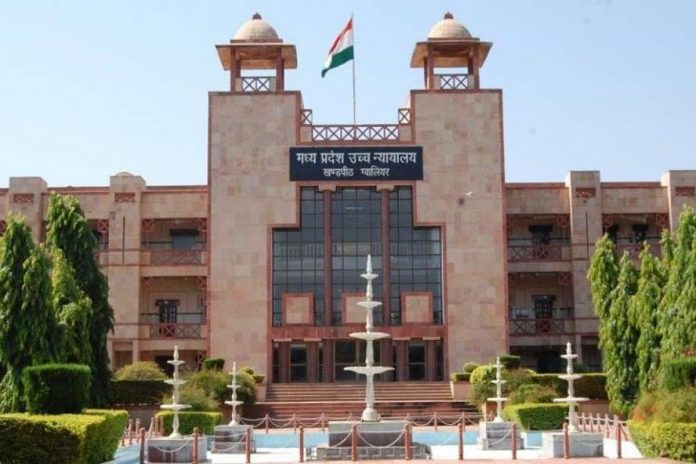The Gwalior Bench of the Madhya Pradesh High Court has dismissed the bail application of a woman accused of female foeticide.
The applicant was arrested on February 4, 2021 in connection with an FIR registered at Police Station Ishagarh, District Ashok Nagar for offence under Sections 313, 318, 376(1) of the Indian Penal Code and under Section 5/6(j)(ii) of the POCSO Act.
V.K. Bhardwaj, Senior Counsel for the applicant, submitted that the applicant has been arrayed as an additional accused by the Trial Court in the exercise of power under Section 319 of the Criminal Code of Procedure. The applicant is a woman with two minor children. It is further submitted that the trial is likely to take sufficiently long time.
R.B. Tripathi, the panel lawyer for the state, vehemently opposed the application contended that the applicant, who is the wife of main accused Arvind, had given some pills to the prosecutrix for the purpose of abortion. It is further contended that there is specific allegation against the applicant in the statement of the prosecutrix which was recorded under Section 164 of CrPC, under which, it is prayed that the bail may not be granted looking to the serious nature of allegation.
The bench of Justice G.S. Ahluwalia, while considering the application held that the trial court by order dated December 31, 2019, has arrayed the applicant as an additional accused. Although the applications to demand anticipatory bail were dismissed in the month of December 2019 and September 2020 respectively, it appears that the applicant could be arrested only on February 4, 2021.
The High Court cited the order of the Apex Court dated January 21, 2021 passed in the case of Rekha Sengar vs. State of Madhya Pradesh (Special Leave Petition (Criminal) No. 380 of 2021) in which the Supreme Court while referring observations in the case of Voluntary Health Association of India v. State of Punjab, (2013) 4 SCC 1 that “Mushrooming of various sonography centres, genetic clinics, genetic counseling centres, genetic laboratories, ultrasonic clinics, imaging centres in almost all parts of the country calls for more vigil and attention by the authorities under the Act. But, unfortunately, their functioning is not being properly monitored or supervised by the authorities under the Act or to find out whether they are misusing the prenatal diagnostic techniques for determination of sex of foetus leading to foeticide.
The ultrasound machines used for such sex determination in violation of the provisions of the Act are seized and, even if seized, they are being released to the violators of the law only to repeat the crime. Hardly few cases end in conviction. The cases booked under the Act are pending disposal for several years in many courts in the country and nobody takes any interest in their disposal and hence, seldom, those cases end in conviction and sentences, a fact well known to the violators of the law.
Read Also: Delhi court rejects bail application of Malvinder Mohan Singh
The Apex Court said that “Contrary to the prevailing practice, the investigative team has seized the sonography machine and made out a strong prima facie case against the petitioner. Therefore, we find it imperative that no leniency should be granted at this stage as the same may reinforce the notion that the PC&PNDT Act is only a paper tiger and that clinics and laboratories can carry out sex‐ determination and feticide with impunity. A strict approach has to be adopted if we are to eliminate the scourge of female feticide and iniquity towards girl children from our society. Though it certainly remains open to the petitioner to disprove the merits of these allegations at the stage of trial.”
Therefor, the High Court refused to grant bail to the applicant.


